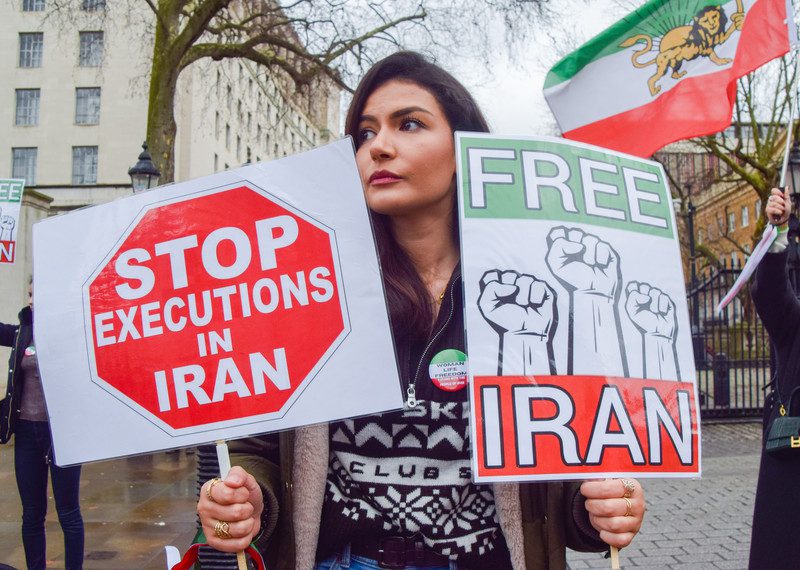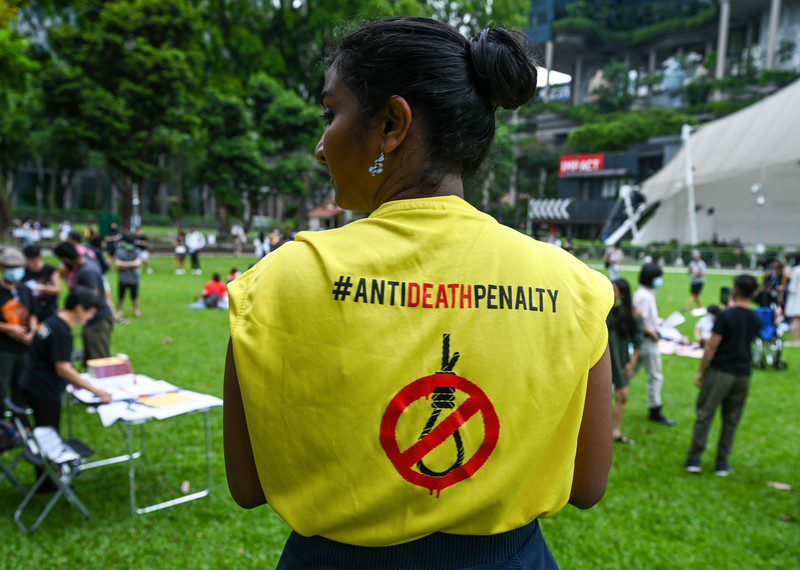Martes, 16 de mayo, 2023
- Highest number of judicial executions recorded globally since 2017
- 81 people executed in a single day in Saudi Arabia
- 20 countries known to have carried out executions
- Six countries abolished the death penalty fully or partially
Recorded executions in 2022 reached the highest figure in five years, as the Middle East and North Africa’s most notorious executioners carried out killing sprees, Amnesty International said today as it released its annual review of the death penalty. A total of 883 people were known to have been executed across 20 countries, marking a rise of 53% over 2021. This spike in executions, which does not include the thousands believed to have been carried out in China last year, was led by countries in the Middle East and North Africa, where recorded figures rose from 520 in 2021 to 825 in 2022. “Countries in the Middle East and North Africa region violated international law as they ramped up executions in 2022, revealing a callous disregard for human life. The number of individuals deprived of their lives rose dramatically across the region; Saudi Arabia executed a staggering 81 people in a single day. Most recently, in a desperate attempt to end the popular uprising, Iran executed people simply for exercising their right to protest,” said Agnès Callamard, Amnesty International’s Secretary General. Disturbingly, 90% of the world’s known executions outside China were carried out by just three countries in the region. Recorded executions in Iran soared from 314 in 2021 to 576 in 2022; figures tripled in Saudi Arabia, from 65 in 2021 to 196 in 2022 — the highest recorded by Amnesty in 30 years — while Egypt executed 24 individuals. The use of the death penalty remained shrouded in secrecy in several countries, including China, North Korea, and Viet Nam — countries that are known to use the death penalty extensively — meaning that the true global figure is far higher. While the precise number of those killed in China is unknown, it is clear that the country remained the world’s most prolific executioner, ahead of Iran, Saudi Arabia, Egypt and the USA. Countries in the Middle East and North Africa region violated international law as they ramped up executions in 2022, revealing a callous disregard for human life. Executions resumed in five countries in 2022 — Afghanistan, Kuwait, Myanmar, the State of Palestine and Singapore — while an increase in executions was also recorded for Iran (314 to 576), Saudi Arabia (65 to 196), and the USA (11 to 18). The recorded number of people executed for drug-related offences more than doubled in 2022 compared to 2021. Drug-related executions are in violation of international human rights law which states that executions should only be carried out for the ‘most serious crimes’ – crimes that involve intentional killing. These executions were recorded in China, Saudi Arabia (57), Iran (255) and Singapore (11), and amounted to 37% of total executions recorded globally by the organization. Executions for drug-related offences were likely to have been carried out in Viet Nam, yet these figures remain state secrets. It’s often those from disadvantaged backgrounds that are disproportionately affected by this callous punishment. Agnès Callamard “In a cruel twist, close to 40% of all known executions were for drug-related offences. Importantly, it’s often those from disadvantaged backgrounds that are disproportionately affected by this callous punishment,” said Agnès Callamard. “It’s time for governments and the UN to up the pressure on those responsible for these blatant human rights violations and ensure international safeguards are put in place.” While executions were up, the total number of recorded death sentences imposed on people remained essentially the same, with a slight decrease from 2,052 in 2021 to 2,016 in 2022. Against this bleak backdrop, there was a glimmer of hope as six countries abolished the death penalty either fully or partially. Kazakhstan, Papua New Guinea, Sierra Leone and the Central African Republic abolished the death penalty for all crimes, while Equatorial Guinea and Zambia abolished the death penalty for ordinary crimes only. As of December 2022, 112 countries had abolished the death penalty for all crimes and nine countries had abolished the death penalty for ordinary crimes only. As many countries continue to consign the death penalty to the dustbin of history, it’s time for others to follow suit. Agnès Callamard The positive momentum continued as Liberia and Ghana took legislative steps toward abolishing the death penalty, while the authorities of Sri Lanka and the Maldives said they would not resort to implementing death sentences. Bills to abolish the mandatory death penalty were also tabled in the Malaysian Parliament. “As many countries continue to consign the death penalty to the dustbin of history, it’s time for others to follow suit. The brutal actions of countries such as Iran, Saudi Arabia as well as China, North Korea and Viet Nam are now firmly in the minority. These countries should urgently catch up with the times, protect human rights, and execute justice rather than people,” said Agnès Callamard. “With 125 UN member states — more than ever before — calling for a moratorium on executions, Amnesty International has never felt more hopeful that this abhorrent punishment can and will be relegated to the annals of history. But 2022’s tragic figures remind us that we can’t rest on our laurels. We will continue to campaign until the death penalty is abolished across the globe.”
Five countries resumed executions: Afghanistan, Kuwait, Myanmar, the State of Palestine and Singapore
A glimmer of hope


